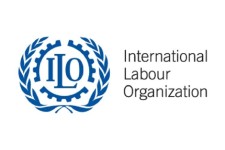International Labour Organization (ILO)

The International Labour Organization (ILO) is dedicated to the promotion of social justice and internationally recognized human and labour rights, thus continuing its founding mission that social justice is essential to universal and lasting peace.
The International Labour Organization (ILO) is an agency of the United Nations with a mandate to advance social and economic justice through the establishment of international labour standards. Founded in October 1919 as part of the League of Nations, it is the first and oldest specialized agency of the United Nations. The ILO has 187 member states: 186 of the 193 UN member states, plus the Cook Islands. It is headquartered in Geneva, Switzerland, and has some 40 field offices around the world. The Office employs some 2,700 officials from over 150 nations at its headquarters in Geneva, and in around 40 field offices around the world. Among these officials, 900 work in technical cooperation programmes and projects.
ILO standards aim to ensure accessible, productive and sustainable work throughout the world in conditions of freedom, equity, security and dignity[3][4]. They are set out in 189 conventions and treaties, eight of which are classified as fundamental by the 1998 Declaration on Fundamental Principles and Rights at Work; together they protect freedom of association and the effective recognition of the right to collective bargaining, the elimination of forced or compulsory labor, the abolition of child labor and the elimination of discrimination in respect of employment and occupation. The ILO is a major contributor to international labor law.
In 1969, the ILO was awarded the Nobel Peace Prize for improving brotherhood and peace among nations, pursuing decent work and justice for workers, and providing technical assistance to other developing nations. [In 2019, the organization convened the Global Commission on the Future of Work, whose report made ten recommendations to governments to address the challenges of the work environment in the 21st century, including a universal work guarantee, social protection from birth to old age, and a right to lifelong learning[6][7].
The ILO is involved in health through three main areas
- Work in health services sector
- Wage-based social security financing mechanisms
- Decent work for health workers
- United Nations
- Public health, global health
- Policy brief or recommendation of good practices
- Mainly international

